‘The party’s finished’: Why Sydney’s real estate boom is officially over
It’s been a wild, record-busting ride, but Sydney’s pandemic-induced property boom is officially over, the experts say. This is what’s next for buyers and sellers.
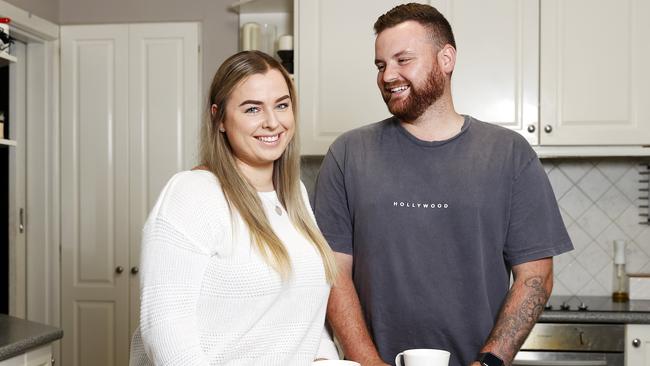
Property
Don't miss out on the headlines from Property. Followed categories will be added to My News.
It’s been a wild ride, but Sydney’s pandemic-induced property boom is over.
After two years of soaring values and incredible sales results, recent weeks have seen a major shift in market conditions. Auctions are suddenly passing in without opening bids, clearance rates are falling, more properties are taking prior offers and there is a subdued atmosphere at open homes.
And conditions are likely to get tougher if interest rates rise, as expected, later in the year.
Auctioneer and real estate industry coach Tom Panos calls about 15 auctions every weekend and said there has been a significant change in the air.
“The boom is 100 per cent over,” Mr Panos said. “In February, we went from nuts to normal. Now, if you ask me, as we move from March into Easter, we’re going from normal to value declines.”
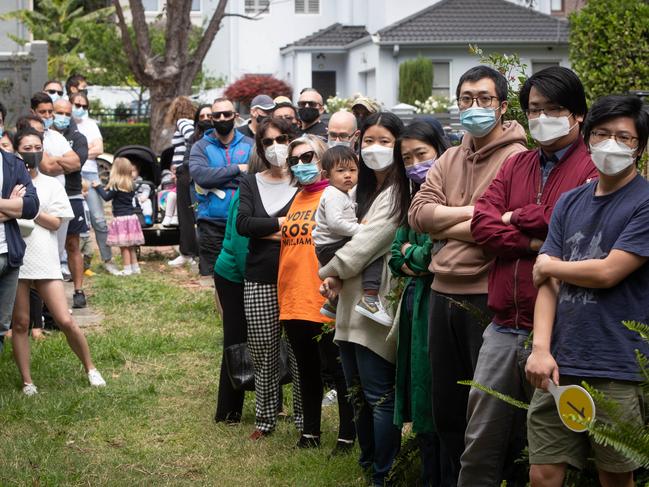
Mr Panos said that $10 million plus properties are showing resilience, but that “90 per cent of the rest of the properties in NSW markets have been impacted”.
“In September, there was the fear of missing out, but now for buyers, it’s been replaced by fear of overpaying,” he said.
And with more listings to choose from- REA data has new property listings 13.2 per cent higher than this time last year, while February had 37 per cent more properties come onto the market than January- buyers could afford to be cautious.
“Buyers have more options now. So sellers who have got a strong reason to sell are reducing the price to meet the market.
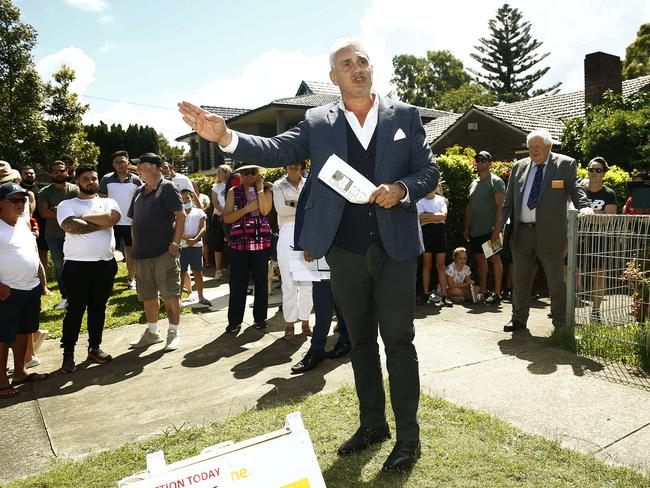
“Those without a strong reason to sell are hanging on waiting for the market to get back to where it was and they are blowing out their days on market,” Mr Panos said.
“It’s really clear that the party is over.”
Sydney’s market correction phase has been reflected in the latest data from REA, which has identified 54 suburbs in the Greater Sydney area where median values have peaked in the last few months and now gone backwards. For context, that’s nearly 10 per cent of all Sydney suburbs.
Number one on this list is the Sydney CBD itself, where house values have plunged by 14 per cent since peaking at $3 million in September last year, to now sit at $2.58 million.
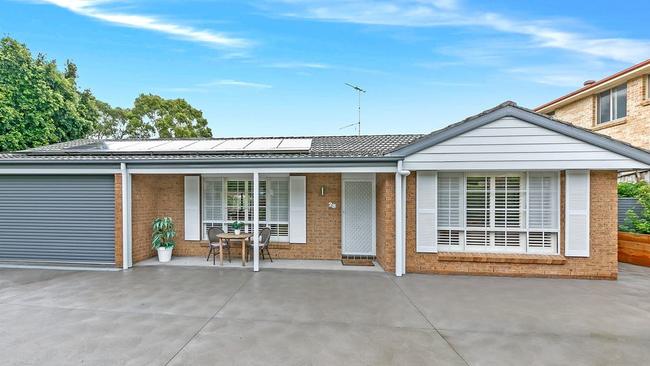
Next was Warrawee, where the median has fallen 8.21 per cent since the beginning of February to now be $3.415 million, while Killcare Heights has lost 8.2 per cent in value after peaking at a median of $2.2875 million just seven weeks ago.
Dural, Wilberforce and Haberfield have all had values fall by more than 6 per cent, while Beaconsfield (5.26 per cent), Chittaway Point (4.35 per cent) and Summer Hill (4.18 per cent) also had significant corrections.
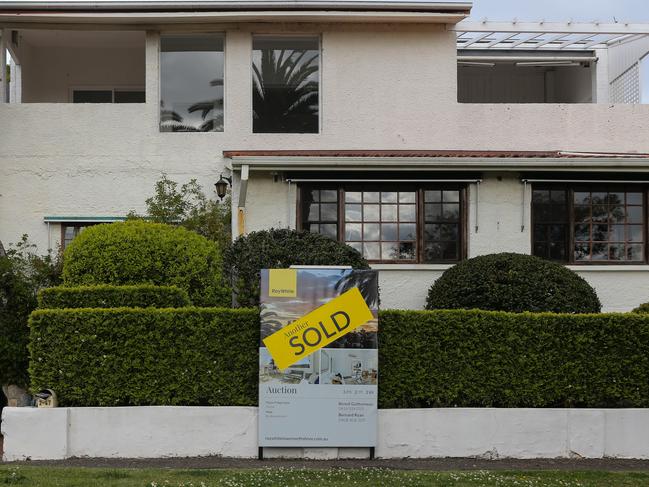
The remaining suburbs on the list fell by between 3.37 per cent and 0.1 per cent and were spread consistently across all areas of Sydney, the Central Coast and south coast, showing that a market correction was well and truly underway across the board.
And this was only the beginning of the trend, according to REA head of economic research, Cameron Kusher.
“That (previous) rate of growth has eased, the peak is gone,” Mr Kusher said. “I think we will see more declines in more suburbs, especially if interest rates do rise.”
Mr Kusher said people’s changing spending priorities since the end of Covid lockdowns had also taken some steam out of the market.
“The rate of growth we have seen was clearly not going to continue,” he said. “A lot has changed in six months, people have other things they want to do now like travel, serviceability criteria has been tightened and rates are now likely to rise.

“We are starting to see demand weakening and that will have a flow-on effect to prices.”
Sydney buyers agent Dan Grantham has noticed value opportunities beginning to open up for his clients. “There’s a big divide between seller expectations and what buyers are prepared to pay. Buyers are pickier now,” he said. “Going to auction is not a bad thing anymore, because more properties have been priced incorrectly by agents.
“If an agent is asking too much, there will be a reduction or two and then other buyers get a bad feeling about the property. That presents an opportunity.”
Mr Grantham believes housing values in Sydney are solid, but that more deals can be made in the new conditions.
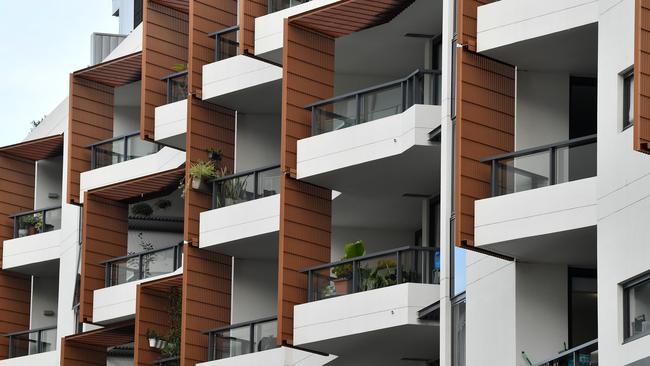
“I don’t think prices will go down, more that the market is changing gears,” he said. “Last year I would look at a guide price, then see that the selling agent might have a track record of selling 40 or 50 per cent above the guide and then factor that in when telling the clients what they should expect to have to pay. But now, today, we are paying around the guide price.”
After a year of frustration trying to buy during the boom, first home buyers Holly Storath and Blake March have finally secured a house in Oran Park.
They had a strict savings plan and cut down on their expenses by living at their parents’ houses, but had been putting money aside each week for several years only to find themselves constantly outpaced by the property market.
“Every time we got on the front foot, the market would kick us back down,” Mr March said.
As the market shifted, the pair said having a good broker on board made all the difference.
“Without a broker we wouldn’t have been able to do it,” Ms Storath said.
Ben White from Aureus Financial took them through some different strategies and helped them get finance approval.
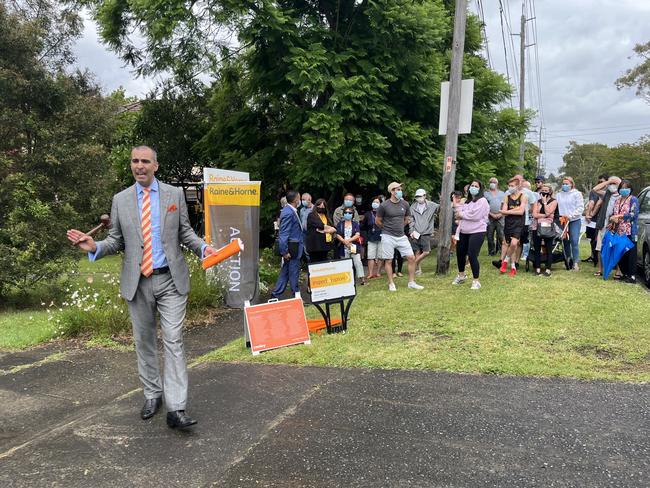
They pounced on a single level house for $950,000, which was at the upper end of their budget.
They said looking for a house in a market where prices were surging and properties were selling quickly was a major challenge.
“I was a nervous wreck,” Ms Storath said.
“I didn’t want to rush it but I felt so rushed.”
Mr White said saving for a deposit was the biggest challenge first home buyers had been facing.
“They can’t save quickly enough,” he said. “That’s where they are getting priced out of the market, especially in Sydney.”
He said a slowdown of the market would enable more people to get their foot in the door.





